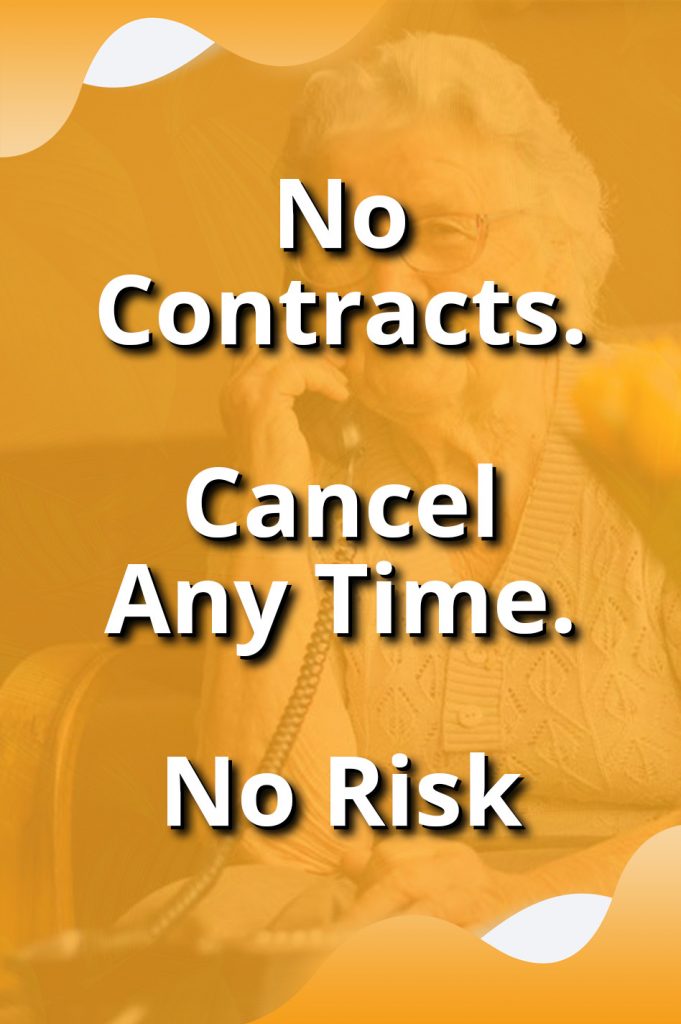As the senior population continues to increase, and the cost of assisted living also rises, families are seeking ways to allow their older members to live at home longer. Although there is a financial benefit for delaying the need for assisted living and nursing home care, there are also mental, emotional and physical benefits for seniors that are able to age in place in their homes for as long as possible.
For some aging in place seniors, their family caregivers are, to one degree or another, physically remote from their location. An adult son might live a half hour drive away in the next county, or a daughter may live a thousand miles away.
This physical remoteness was once unheard of in senior caregiving, especially in the example of living on the other side of the country. There once was a time when older family members moved into their adult children’s homes, but now, with few stay-at-home mothers or fathers, there are also fewer stay-at-home caregivers. Now, however, technology and other methods can help keep tabs on loved ones from any distance, ensuring peace of mind about the safety and well-being of our senior relatives.
Read on to learn more, courtesy of CareCallingNow:
Monitoring through the use of technology
The Internet has revolutionized how we can control our homes. With a swipe of our smartphones, we can close a garage door, check to see which lights are on in the house, and lower the thermostat. Each of these functionalities can help in monitoring a senior relative from a distance – even if the distance is just a few miles. But beyond adjusting the temperature and dimming lights, smart devices can open a window into what’s happening at any moment in a home.
Smart doorbells and cameras are inexpensive ways to monitor access. The cameras can be discreetly placed at doorways, such as the front entrance and rear patio, and they can also be set inside a home so that a family member can remotely monitor who might be visiting. Many of these cameras offer two-way voice message capabilities, so if one monitoring sees that their parent has fallen, a voice conversation can assure the senior that help is coming. This technology seamlessly interfaces with smart devices and can be set to save and archive days’ worth of footage.
On top of those options, it’s always a good idea to use video calling options, such as FaceTime, Zoom, or Amazon Echo, to check-in face-to-face. Even if it is virtual, the interaction can give a big boost, if your senior loved one is feeling lonely. Of course, seniors often struggle with self confidence, especially when it comes to using technology. If your senior feels inept, plug into some of ZenBusiness’s self confidence advice and talk them through avoiding negative feelings about themselves.
Old-fashioned monitoring through a network of allies
Beyond technology, adult children can get to know neighbors. Especially, if the senior has been living in the community for a long time, neighbors may know the senior well and may have concern for their well-being. By developing a rapport with neighbors, you can create a lifeline for those moments that step outside of the video-monitoring frame.
Invest in the time to meet these neighbors and discuss any concerns. You’ll want to provide them with contact information so that you can be alerted about problems, but you should also ask if it is OK to reach out to them from time to time. Sometimes neighbors may feel that they are being intrusive or nosey, but if you create a two-way dialogue, they will feel more comfortable discussing neighborhood concerns.
Finding in-house assistants
If your senior relative has no nearby neighbors, you may want to explore the idea of finding a roommate. Suitable candidates are other seniors, ideally those without significant mobility or other concerns. Ask relatives and friends of the senior to see if anyone is looking to downsize their living. The companionship will be beneficial to the senior, and it will provide some comfort that your relative is safe.
Through a combination of technology, planning and other efforts, it is possible to provide care to a senior remotely.
Photo Credit: Pixabay
Guest Article: Elena Stewart
Hopefully, these tips for the Long-Distance Caregiver Tips in the Time of COVID have helped.

When your day gets overwhelming, important things can be missed, so, rely on Care Calling Now.
Every day that someone you care about, gets a call, to make sure they’re OK! Care Calling Now…
peace of mind when life gets overwhelming!





